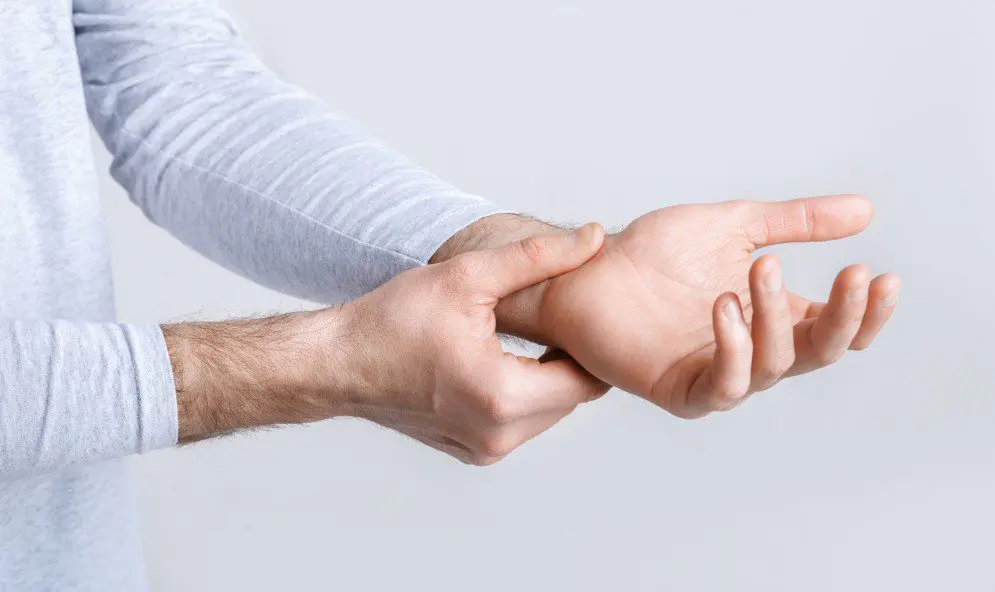Carpal Tunnel Surgery: Learn More About This Procedure
If you find yourself suffering from pain, numbness, or weakness in your hand or arm, this may be caused by carpal tunnel syndrome, which means you have a compressed nerve or pinched nerve in your wrist. Carpal tunnel surgery is one way that we can correct this issue, which can be extremely uncomfortable and interfere with your ability to work.
What Is Carpal Tunnel Syndrome?
Our bodies have billions of nerves and these are grouped into three categories – sensory nerves, motor nerves, and autonomic nerves; sometimes a nerve is a mix of these categories. The median nerve, which runs from about the middle of your arm to your hand, is a combination of a sensory nerve and motor nerve.
This nerve runs through your carpal tunnel, which is a passage of bones and ligaments near the base of your hand. Tendons also run through the carpal tunnel, and sometimes, these tendons become inflamed and swell. This swelling of the tendons compresses the median nerve. In some cases, the swelling goes down and everything is fine, but often there is chronic swelling, and this can cause pain, tingling, and numbness in the wrist, hand, and lower arm.
What Causes Carpal Tunnel Syndrome?
Many factors can contribute to this condition. We often associate this condition with people who work all day using a computer. Repetitive actions can cause the tendons to swell. Factory workers often use equipment that requires repetitive motions or use equipment that vibrates, which can lead to carpal tunnel syndrome. Contractors that frequently use hammers and drills might also develop this condition.
Still, carpal tunnel syndrome isn’t always related to one’s occupation. Sometimes pregnancy can cause the tendons to swell and press on the nerve. People with diabetes or arthritis or other conditions that can cause inflammation might develop carpal tunnel syndrome. Sometimes a deformity or injury can cause this syndrome to occur.
How We Diagnose & Treat Carpal Tunnel Syndrome
There are a few other conditions that can cause pain, weakness, and numbness in the wrist and arm, so our first step is to determine if your issue with carpal tunnel syndrome or perhaps an issue such as a trigger finger or DeQuervain’s tendinosis is the cause of hand pain.
Typically, carpal tunnel syndrome presents with the following symptoms:
- Numbness (particularly at nighttime)
- Tingling & pain in the fingers (most commonly the index, middle, and thumb)
- Lack of feeling (usually in the fingertips)
- Difficulty using your hands (you might have trouble writing or buttoning clothing or holding small items)
If you are experiencing these symptoms, you need to book an appointment. We can use several diagnostic tools to determine if carpal tunnel issues or something else is causing your pain and numbness.
For instance, we might take x-rays to rule out any injuries. We also can check for nerve problems using Tinel’s sign. For this, the doctor simply taps on the median nerve. If you feel tingling in your fingers, this could indicate that the nerve is pinched or compressed.
We also will use Phalen’s test, and for this, a patient will place the will limply press the backs of their hand together for about a minute. If there is tingling or pain, this can indicate carpal tunnel syndrome and, depending on how quickly or how severe the tingling or pain, it can let the doctor know how far this issue has progressed.
For a minor case of carpal tunnel syndrome, most patients respond well to treatments such as cortisone injections and wearing a wrist splint while they are sleeping. There are also splints you can wear during the day, and we might recommend (for office workers) that they use a special type of keyboard or adjust their chair, etc.
In some cases, if the syndrome has progressed or nonsurgical treatments aren’t producing the desired effect, we will suggest solving the problem using carpal tunnel surgery. The good news is that this surgery is a simple, outpatient procedure that does not require the use of general anesthesia.
Carpal Tunnel Surgery: What To Expect
Once we have determined that carpal tunnel syndrome is the culprit and that carpal tunnel surgery is the best course of action, we will schedule your procedure. On the day of the procedure, we will use either local anesthesia or IV sedation during the procedure, the latter of which is often a good option for patients that are especially nervous about the procedure. It is similar to the IV sedation that you might receive during a colonoscopy or perhaps during a dental procedure.
Once we have prepared and numbed the area, Dr. Thaxton will begin the procedure. Two methods can be used. With traditional surgery, we make an incision about two inches in length and go in and cut the carpal ligament. The doctor then enlarges the carpal tunnel, and this releases the pressure on the median nerve.
The other option is to use an endoscopic procedure. For this, two half-inch incisions will be made, one on the palm and the other on the wrist. Then a camera is inserted into an incision and the camera helps guide the doctor so that they can cut the carpal ligament.
Both techniques can be highly effective, and both only take a short time to perform, perhaps only 15 minutes. After the carpal tunnel surgery is complete, your wrist will be bandaged and you will be monitored for about an hour or so, and then you will be ready to go home.
In general, patients don’t experience severe pain after the surgery and most discomfort can be alleviated or reduced with over-the-counter pain medicine. There might be some swelling, but keeping your arm elevated for the first few days, especially at night, can help reduce any swelling. Numbness in the surgical area can last for several weeks.
We usually recommend you are gentle with your wrist and hand for a couple of weeks following surgery. Some patients might need physical therapy to improve their range of motion, but others can perform some simple exercises at home to improve motion and reduce any stiffness. Every patient’s situation recovery timeline is unique, but we will provide you with aftercare instructions that will help you recover as quickly as possible.
People often associate plastic surgery with cosmetic procedures such as a nose job, facelift, or breast augmentation, but these surgeons can help provide relief for many chronic conditions. As a Charleston plastic surgeon, Dr. Thaxton can help with carpal tunnel surgery and several other hand conditions, including trigger finger and Dupuytren’s contracture.
If you are having pain, tingling, and numbness in your hand and believe you may have carpal tunnel syndrome, give us a call today, and let’s schedule an appointment. Carpal tunnel surgery is a simple and effective solution that can eliminate the pain and numbness in your hand and wrist.





